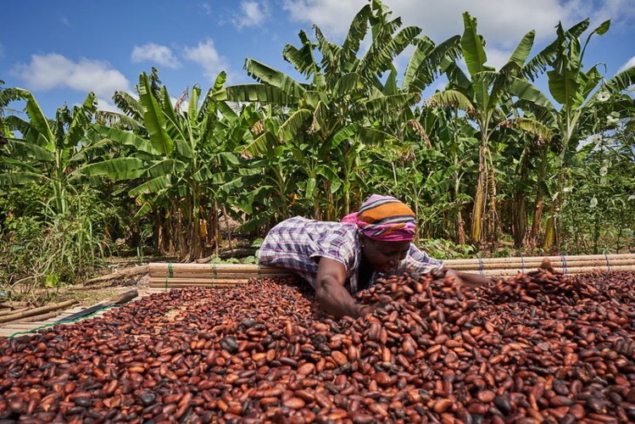A policy and advocacy think tank, Tsa-Ke-Mo is calling for stronger public policies to encourage value-addition to cocoa produced in Ghana and Cote D’Ivoire.
The group which is geared at promoting value addition and youth job creation from natural and agricultural resources said it is rather disappointing that Africa which produces 75% of the world’s cocoa only enjoys 2% of the world’s $100billion chocolate industry.
According to them, though there have been some indications by governments to address the huge disparity identified, not much has been realized due to a lack of strong policies and commitments.
An implementation of these policies they say will generate jobs and employment for Africa’s energetic youth population.
The Tsa-Ke-Mo, therefore, suggested some actionable policies to catalyse the growth of the cocoa value addition industry in Ghana and Cote D’Ivoire.
In a press statement to mark this year’s National Chocolate Week, Tsa-ke-mo called for 60% of cocoa produced in Ghana and Cote D’Ivoire to be retained and value added.
They stated that the 60% should be made more easily accessible to processing industries at affordable prices to ensure maximum participation of the country’s private sector.
They also called for the creation of a national fund for cocoa value addition capacity building and financing for the youth of the respective countries using at least 20% of cocoa export revenue.
They further stated that to serve as an incentive for private organisations and individuals to join the drive towards higher value addition for cocoa, new cocoa processing companies should be exempted from paying taxes in the first five years, whereas old cocoa processing companies should have their taxes reduced.
Tsa-ke-mo urged the governments of Ghana and Cote D’Ivoire to put in place a free import duty regime for industrial machines and equipment for industries involved in cocoa processing or chocolate manufacturing.
Finally, increase funding for cocoa research and product development in the respective countries will go a long way to help.
The group is optimistic that, these initiatives will increase employment opportunities, contribute to a more sustainable economy, and grant the governments some bargaining power over finished products which will then generate greater revenue for the countries.
Latest Stories
-
Camidoh explains why he ditched rapping to focus on singing
4 minutes -
50 Nigerians arrested in McCarthy Hills raid over cyber fraud and trafficking
6 minutes -
Father killed, son injured in armed robbery attack on Bole-Bamboi highway
8 minutes -
Ghana Shippers Authority and Prof Ransford Edward Van Gyampo in focus
16 minutes -
GH₵13bn for Big Push insufficient – Egyapa Mercer
21 minutes -
I paid people to insult me so I would be popular – Akuapem Poloo
37 minutes -
WAFCON 2024: Black Queens are a ‘better team’ now – Björkegren
46 minutes -
Council of State member escapes highway robbery as gunmen steal cash and rifle
1 hour -
BBC and news agencies warn journalists in Gaza at risk of starvation
1 hour -
12 killed in Thailand-Cambodia military clashes on disputed border
1 hour -
WAFCON 2024: South Africa want to ‘end on a high note’ against Ghana
1 hour -
Coca-Cola to launch Cane Sugar Coke in the US, potentially boosting Ghana’s sugar economy
1 hour -
Minority threatens to boycott Mid-Year Budget presentation
1 hour -
Isak not in Newcastle’s pre-season Asia tour squad
2 hours -
WAFCON 2024: Black Queens ‘mentally prepared’ for South Africa – Stella Nyamekye
2 hours

